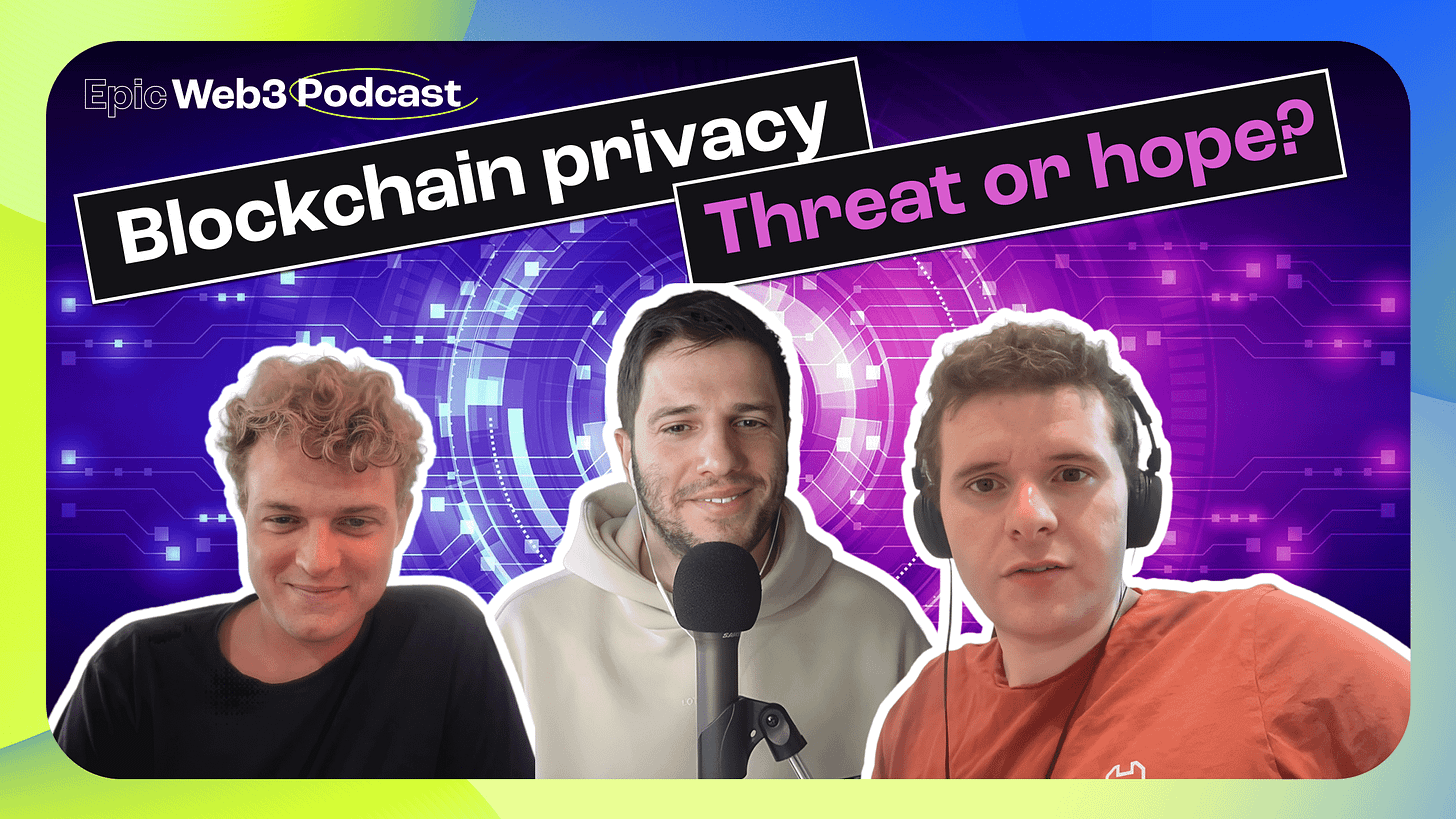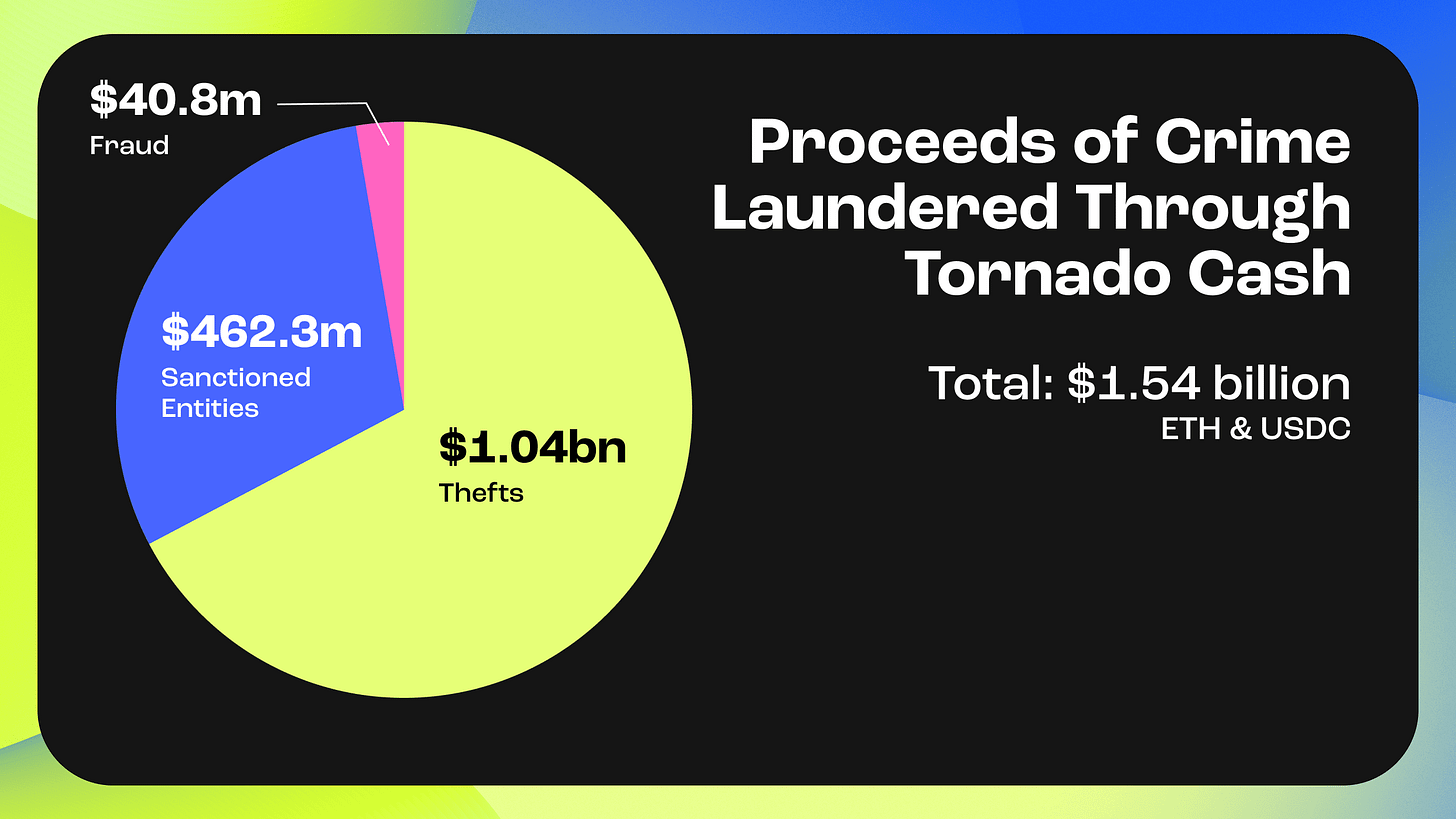GM and happy Monday frens🖖
Last week Vitalik Buterin had his birthday, he is now 30 years old. Hooray!
In celebration of that, today's newsletter is ETH-heavy:
🌷 3 must-see events of March
🐱💻 Deep dive on privacy with Aztec Protocol
📰 Top news of this week
Ready? Let’s go👇
🏃3 events about ETH Infrastructure
Epic Web3 is having 3(!) events this March. And guess what? They are all going to be awesome:
🇺🇸Epic ETH Infra Day at ETHDenver — March 1, Denver
🇬🇧Epic ETH Infra Day at ETHGlobal London — March 14, London
🇰🇷Epic ETH Infra Day at ETH Seoul — March 28, Seoul
🤿Deep Dive: Is there war on privacy in Web3?
Recently we invited to our podcast Zach Williamson, CEO & Co-founder of Aztec Protocol, a privacy-first zkRollup on Ethereum.
Today's deep dive is his opinion on different privacy issues in Web3.
I think there is a war on privacy. It's very unfortunate. I feel like there are two strands to pull out here.
One of them is that there is a cultural consensus as much as the wider non-technical community knows about blockchains and privacy. There's a cultural consensus that privacy is shady. It's used by bad actors if you've got nothing to hide, you've got nothing to fear.
And it's only used to mix tokens. And therefore, it's bad. So you have that angle.
And then a corresponding reaction is to protect individuals and protect users.
You then also have the other angle, which is that blockchain is a threat to existing financial incumbents and economic elites.
At the moment, I would argue it's a threat with an enormous amount of unfulfilled potential and not particularly concerning.
Why Tornado Cash is getting prosecuted
Tornado Cash is caught up in an institutional power struggle within the American government where who regulates crypto is very much uncertain. And so I think what you're seeing is a bunch of different power grabs from entities like the Feds to the SEC, where they're all trying to claim that mandate.
And there's a lot of collateral damage as a result of that.
That being said, like what I've tried to describe is sort of like the impressions and the interests of various groups that are acting with it, like to kind of act as a war on privacy. But there's a huge education issue here as well because I think that a lot of people are simply just not aware of what what it does is decentralized privacy network really mean, because it doesn't really look like Tornado Cash.
Lots of people use Tornado Cash just for basic anonymity because being private is not a crime. But, you know, when the Lazarus group runs hundreds of millions of dollars through your mixing network and, generally the federal government really doesn't like people getting in the way of them trying to catch North Korean hackers. So that was a problem.
What are use-cases of privacy-first applications
The account abstraction is a big hot topic at the moment because it can solve a lot of the user experience problems with Web3 accounts.
You know, right now you've got a private key. If you lose your private key, sucks to be you. You lost your money. That's not great.
How about signing in with Google or with Apple? Imagine if that was that simple. That's what that's what things like WebAuth are trying to do, I believe. Web3 where you could have a contract which instead of verifying the correctness of an Ethereum signature, it validates some kind of sign-in process through Google accounts.
You'd have a digital signature signed by Google, some authenticating entity to validate the correctness of that signature, mapping it to a user. Similarly, you could have two-factor authentication. So code gets sent out to your phone and then you have a smart contract that validates the correctness of that code.
That would be that would solve the user experience problem.
Why privacy is important for crypto future
Imagine everyone could see your Web3 transactions flowed from not just an Ethereum address, but a specific Google account, that's why I would argue that's a problem.
I would argue that's far too much information that gets revealed and people wouldn't be comfortable with that in the same way that, if you go on Twitter and ask people, how could they be comfortable with broadcasting their Amazon purchases to the world? You don't get many takers other than the complete degenerates.
But with privacy, that no longer becomes a problem because that authentication contract, the value is who you are, is a private smart contract, which means that what you're effectively serving to the blockchain is proof of correctness that you follow the Google all sign-in process.
To learn more about the current state of privacy, click the button below and listen to the full version!
🎓 Blitz News
👽Vitalik Buterin shared his article on 4 intersections of AI and Web3
🐉NEAR launches Phase 2 of it's sharding
🧪Ethereum's 'Dencun' upgrade goes live on the second testnet
😱Ripple's co-founder's wallet got hacked, $112M XRP is stolen
All right, that’s it for today! 👋 But wait…
You didn’t say “gm” on Twitter! Let’s catch up there for daily insights.
Sending growth your way,
Epic Web3






